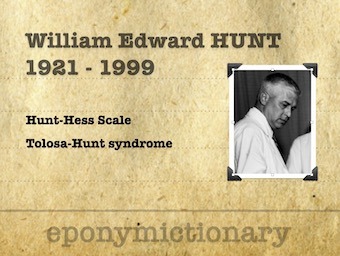
William E. Hunt
William Edward Hunt (1921 - 1999) was an American neurologist and neurosurgeon. He is eponymous with the ophthalmologic entity Tolosa-Hunt syndrome, and the Hunt-Hess classification for intracranial haemorrhages.

William Edward Hunt (1921 - 1999) was an American neurologist and neurosurgeon. He is eponymous with the ophthalmologic entity Tolosa-Hunt syndrome, and the Hunt-Hess classification for intracranial haemorrhages.
Description The Hunt-Hess Scale is a graded scale used to predict the rate of mortality based solely on the clinical features seen in a patient presenting with an aneurysmal subarachnoid haemorrhage. Grade Characteristic Mortality Rate1,2 0 Unruptured aneurysm without symptoms…
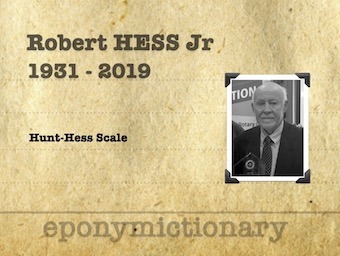
Robert McDonald Hess Jr (1931 – 2019). Hess, alongside his mentor William Hunt, is eponymous with the Hunt-Hess Scale.
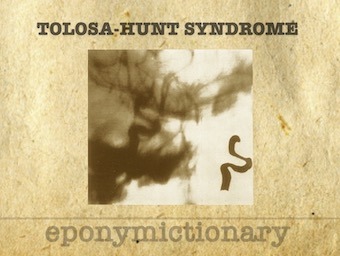
Tolosa-Hunt syndrome: severe unilateral periorbital headache and ophthalmoplegia resulting from a non-caseating granulomatous inflammation of the cavernous sinus and/or superior orbital fissure.
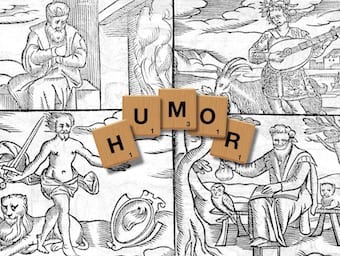
More hilarious brilliance from ‘That Mitchell and Webb Look‘ – following on from their ‘homepathic A&E‘ masterpiece. This skit reminds me of a half-remembered anecdote from Frank Vertosick Jr.’s classic book about neurosurgical training, ‘When The Air Hits The Brain‘.…

Guest post by Dr Peter Hutchinson, Professor of Neurosurgery; Dr Angelos Kolias, Clinical Lecturer in Neurosurgery; and Dr David Menon, Professor of Anaesthesia – all at the University of Cambridge and Addenbrooke’s Hospital, Cambridge, UK. It is a response to the recent…
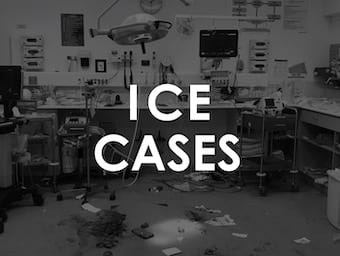
A 9 year old boy fell while trampolining and struck his head on the trampoline frame. There was definite loss of consciousness but just for how long is unclear as the only witnesses were friends his age. The clinical image shows findings on the left side of his head.

Alistair Nichol explains why the "favourability" of outcomes from brain trauma in the RESCUEicp trial are in the eye of the beholder.

According to an editorial in the NEJM, decompressive craniectomy "has a proven benefit in the management of malignant cerebral edema after ischemic stroke”... We point out the caveats to this assertion.

GENERAL APPROACH INTRODUCTION CUBICLE INFUSIONS VENTILATOR MONITOR EQUIPMENT QUESTION SPECIFIC EXAMINATION -> scars, surgical wounds, drains-> motor level: myotomes, spinal reflexes, limbs and abdominal muscles, return of bulbocaveronsus reflex (resolution of spinal shock)-> sensory level: dermatomes, sensory tracts (dorsal columns,…

Spinal epidural abscess is considered a neurosurgical emergency; morbidity and mortality is worse with delayed diagnosis, and the worse the neurological deficit at the time of surgery the worse the outcome

Decompressive craniectomy is a controversial therapy for malignant middle cerebral artery (MCA) stroke